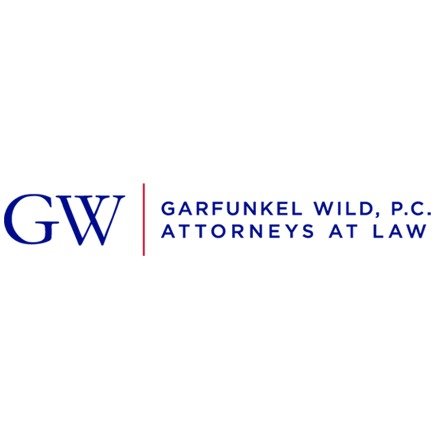Best Due Diligence Lawyers in New York
Share your needs with us, get contacted by law firms.
Free. Takes 2 min.
Or refine your search by selecting a city:
List of the best lawyers in New York, United States
About Due Diligence Law in New York, United States
Due diligence refers to the thorough investigation and evaluation process that takes place before entering into significant transactions such as mergers, acquisitions, real estate deals, or business partnerships. In New York, due diligence law is composed of state statutes, regulations, and industry-specific requirements that set the standard for the level of care, investigation, and disclosure expected from parties involved in a transaction. Conducting proper due diligence is essential to identify risks, ensure compliance, and protect your legal and financial interests.
Why You May Need a Lawyer
Retaining a lawyer for due diligence in New York can provide significant benefits, particularly in complex or high-value transactions. Common situations where legal help is crucial include:
- Buying or selling a business, especially across state or national borders.
- Purchasing commercial or residential real estate.
- Entering significant contractual relationships such as joint ventures or franchise agreements.
- Engaging in mergers, acquisitions, or restructuring activities.
- Complying with regulatory requirements, especially for licensed or heavily regulated industries.
- Investigating the background or legal standing of a business partner, vendor, or investor.
A lawyer can help ensure that all relevant documents are reviewed, legal requirements are met, and that you understand both risks and obligations before completing a transaction.
Local Laws Overview
In New York, due diligence requirements are shaped by various statutes, regulations, and case law. The specifics depend on the nature of the transaction. Some key aspects include:
- Real Estate: New York law requires sellers to disclose certain conditions. Buyers often perform title searches, property inspections, and zoning compliance reviews.
- Business Transactions: Lawyers may review corporate records, contracts, financial statements, pending litigation, licenses, and compliance with state and federal regulations.
- Securities: New York businesses dealing in securities must follow both state Blue Sky laws and federal securities laws, demanding rigorous documentation and disclosure during transactions.
- Employment: Labor law compliance must be verified for companies being acquired or merged, including wage, hour, and benefit obligations.
- Regulatory Compliance: Some industries, such as healthcare, banking, and insurance, have additional state-specific due diligence obligations to ensure regulatory compliance.
Failure to thoroughly conduct due diligence can expose parties to legal and financial liabilities under New York law.
Frequently Asked Questions
What is due diligence in New York?
Due diligence is the process of gathering, verifying, and analyzing information before finalizing legal or financial transactions. In New York, this includes reviewing documents, performing background checks, and ensuring legal compliance.
Who performs due diligence?
Due diligence can be conducted by attorneys, accountants, real estate professionals, and industry consultants. For legal matters, attorneys are often the main professionals engaged in the process.
Is due diligence legally required in New York?
Some transactions require due diligence by law, while in others, it is not mandatory but strongly recommended to protect your interests and avoid future disputes.
How long does the due diligence process take?
The time required depends on transaction complexity. Simple deals may take a few days, while complex mergers or acquisitions can take several weeks or months.
What risks can due diligence help uncover?
Proper due diligence can reveal financial liabilities, undisclosed debts, contractual obligations, regulatory non-compliance, liens, pending litigation, and environmental issues.
Are there specific New York laws for real estate due diligence?
Yes, specific laws cover property disclosures, title searches, zoning, and environmental assessments. New York attorneys often advise buyers to conduct a comprehensive review to avoid surprises.
What happens if due diligence uncovers problems?
If issues are discovered, you may renegotiate terms, request remediation, seek warranties or indemnities, or decide to walk away from the deal to avoid potential losses.
Do I need a lawyer for due diligence in small transactions?
Even in small deals, legal guidance is beneficial. Lawyers can spot hidden risks, draft protective clauses, and ensure your rights are safeguarded under New York law.
Can due diligence be tailored to my situation?
Yes. Due diligence scopes are customized based on the transaction's type, value, industry, and associated risks.
How do I start the due diligence process in New York?
Consult a qualified attorney who will assess your needs, help gather necessary information, perform reviews, and advise on any legal steps needed before closing the deal.
Additional Resources
There are several helpful organizations and resources for those seeking more information about due diligence in New York:
- New York State Bar Association - Offers legal resources and can help connect you with specialized attorneys.
- New York City Department of Finance - Provides guidance on real estate transactions and property records.
- United States Securities and Exchange Commission (SEC) - Offers educational materials for those involved in securities transactions.
- New York State Office of the Attorney General - Regulatory guidance on consumer and business protections.
- The Real Estate Board of New York - Resources for real estate due diligence and market analysis.
Next Steps
If you believe you need legal assistance with due diligence in New York, start by defining your goals and the type of transaction involved. Gather relevant documents and background information. Next, consult a licensed attorney who specializes in your area of need, such as real estate, business acquisitions, or regulatory compliance. Most law firms offer initial consultations to discuss your situation, evaluate risks, and propose a path forward. Acting early can help you identify potential problems, negotiate better terms, and protect your investments or interests.
Lawzana helps you find the best lawyers and law firms in New York through a curated and pre-screened list of qualified legal professionals. Our platform offers rankings and detailed profiles of attorneys and law firms, allowing you to compare based on practice areas, including Due Diligence, experience, and client feedback.
Each profile includes a description of the firm's areas of practice, client reviews, team members and partners, year of establishment, spoken languages, office locations, contact information, social media presence, and any published articles or resources. Most firms on our platform speak English and are experienced in both local and international legal matters.
Get a quote from top-rated law firms in New York, United States — quickly, securely, and without unnecessary hassle.
Disclaimer:
The information provided on this page is for general informational purposes only and does not constitute legal advice. While we strive to ensure the accuracy and relevance of the content, legal information may change over time, and interpretations of the law can vary. You should always consult with a qualified legal professional for advice specific to your situation.
We disclaim all liability for actions taken or not taken based on the content of this page. If you believe any information is incorrect or outdated, please contact us, and we will review and update it where appropriate.
Browse due diligence law firms by city in New York
Refine your search by selecting a city.

















